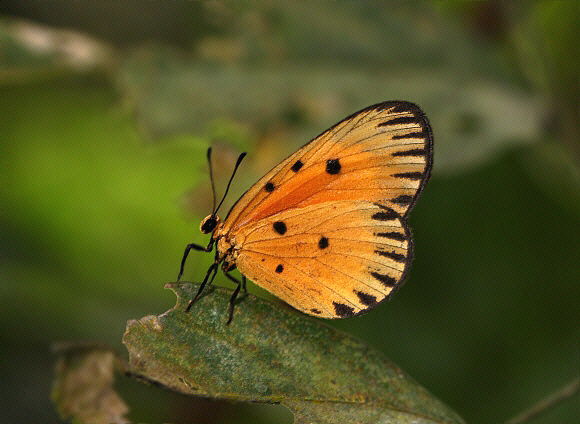
Introduction
The subfamily Lipteninae is wholly African in distribution. It comprises of 600 species varying from the tiny creamy yellow Liptena xanthostola to the dazzlingly bright metallic blue Epitola posthumus – a species which with a wingspan of 65mm is massive by Lycaenidae standards.
The Lipteninae are fascinating because of their association with “ant trees”, i.e. trees which support colonies of Crematogaster ants. As with most other Lycaenidae species, the caterpillars of Liptenids have ants in almost constant attendance. The ants “milk” a sugary substance from a gland on the caterpillar’s back, and in return for this reward the caterpillar benefits because the presence of the aggressive ants deters other insects such as wasps and flies that would otherwise attack them.
The genus Pentila comprises of 37 known species, most of which are patterned with black dots and dark borders, although the ground colour varies according to species from white to bright orange.
Pentila pauli is distributed across most of tropical sub-Saharan Africa from Senegal to Ethiopia and south to Angola, Congo, Tanzania and Malawi.
Habitats
This species is found in open sunlit areas of rainforest, e.g. at the edges of clearings and along logging roads, and in dry forest / savannah mosaics.
Lifecycle
The larvae browse on the trunks of trees, feeding on algae or possibly on lichen or microscopic fungi coating the bark. In the case of Pentila pauli the trees usually host colonies of Crematogaster ants, but this is not always the case, so any relationship with the ants is not likely to be symbiotic.
Adult behaviour
Both sexes commonly visit the extrafloral nectaries of Marantochloa, sometimes with as many as 3 or 4 Pentila pauli gathering to feed together.
